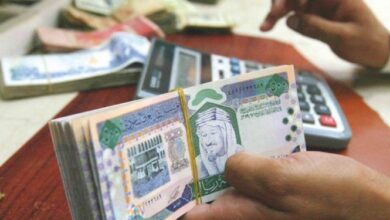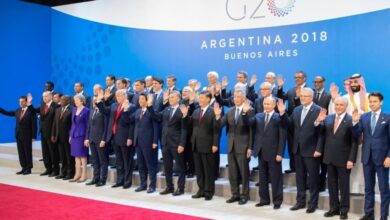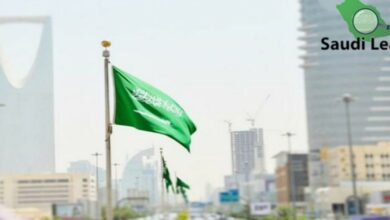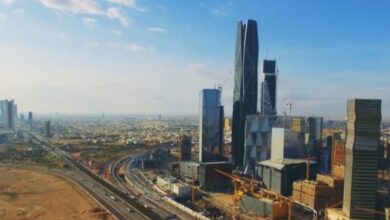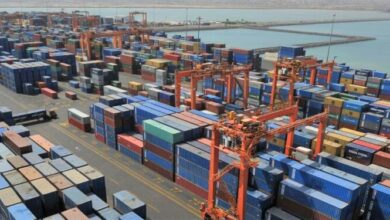‘Never waste a crisis’: inside Saudi Arabia’s shopping spree
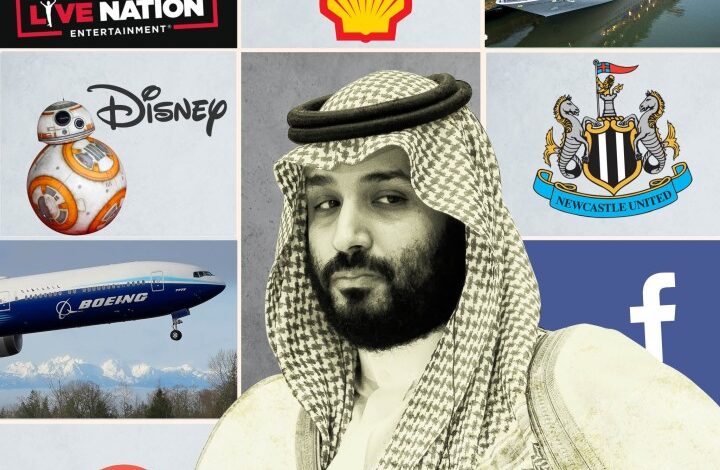
“You don’t want to waste a crisis . . . So for us, definitely we are looking into any opportunities.”
That was the message delivered by Yasir al-Rumayyan, governor of Saudi Arabia’s sovereign wealth fund, as more than 2,000 bankers and executives tuned in to a virtual conference in April. And they were not idle words.
The $325bn Public Investment Fund has not been shy about its ambitions since it fell under Crown Prince Mohammed bin Salman’s stewardship five years ago — it boasts of becoming the world’s “most impactful investor” and the largest sovereign wealth fund. As the coronavirus pandemic wreaks economic carnage across the globe, PIF has stepped up a gear to become the most publicly active sovereign investment vehicle, unabashedly seeking out bargains amid the panic.
Three days after the conference, US regulatory filings revealed the fund had made one of its biggest bets on a company battered by the global crisis. It has snapped up a 5.7 per cent stake worth around $500m in Live Nation, a US-based entertainment company. Three weeks earlier, it had pounced when the shipping industry was sinking to build what is now a 7.3 per cent holding in Carnival, making it the second-largest shareholder in the world’s biggest cruise line operator.
It has also invested in about 20 US and European blue-chip companies, such as BP, Royal Dutch Shell, Total, Boeing, Citigroup, Disney and Facebook, acquiring smaller stakes worth at least $7.7bn in the first three months of the year. And those were just the investments made public. Separately, it led an investor group that agreed to buy Newcastle United, the English football club, for £300m.
“They are very engaged with investors. They see lots of opportunities, a lot of capital needs that will give them access to businesses,” says a senior London-based banker. “Hasty or good timing? We won’t know for another three years.”
PIF says it is “identifying opportunities to invest in solid companies with strong, long-term outlooks who we expect will be sector leaders when global economic activity begins to approach pre-pandemic levels”.
But this flurry of activity has brought increased scrutiny for a neophyte global investor, which is at the forefront of Prince Mohammed’s bold plans to modernise Saudi Arabia and reduce the kingdom’s dependency on oil. PIF has been a source of contention for several years. Its association with the crown prince meant it was tainted by the murder of journalist Jamal Khashoggi by Saudi agents in 2018. And it entered the crisis with a mixed investment record.
Critics fear it has become the personal tool of Prince Mohammed, a state-within-a-state that threatens to crowd out the private sector at home — where it is pursuing multibillion-dollar projects that risk becoming white elephants — even as it makes huge bets overseas. Its advocates argue that its role is vital for incubating and developing new industries to spur the diversification of the economy.
Now that it is splashing cash in foreign markets, at a time when Riyadh is grappling with its worst economic crisis in decades, there are questions about its activities. Is it being opportunistic or strategic? Why invest in oil companies when its mandate is to diversify the economy? Should it be prioritising support for the struggling domestic economy?
“There’s a disconnect between the dire domestic fiscal situation and the fund’s continuous outward investments,” says John Sfakianakis, a Gulf expert at Cambridge university. “And that complicates the economic recovery due to finite sources of funding.”
Buffeted by a combination of coronavirus and the collapse in crude oil prices, Riyadh is slashing government spending, raising debt and imposing painful austerity measures, including tripling VAT to 15 per cent. Although the world’s top oil exporter has foreign reserves of $470bn, it needs to preserve the bulk of those funds to stave off speculation on the riyal’s dollar peg.
Other Gulf investment funds, including Abu Dhabi’s Mubadala and the Qatar Investment Authority, are also hunting distressed assets at a cut price, as they did during the 2008-09 financial crisis. But both Abu Dhabi, capital of the United Arab Emirates, and Qatar have smaller populations, longer records of active investing and are wealthier in per capita terms.
“The big man [Prince Mohammed] needs to be careful what he spends on . . . Joe Public will be watching,” says a senior Gulf-based banker who adds that Saudi nationals will not appreciate “millionaire footballer salaries being paid for by VAT on groceries”.
Yet Mr Rumayyan, one of Prince Mohammed’s closest confidants and head of the PIF since 2015, believes this is the fund’s moment to expand its portfolio as he strives to increase its assets under management to $2tn by 2030.
“If you look at different sectors, like airlines, oil and gas, entertainment, they are all put on hold by the stoppage of the economy,” Mr Rumayyan told the April conference. “So we think once the economy is opening up we will see a lot of returns.”
Some bankers and economists say a case can be made for the investments in Carnival and Live Nation as both fit with Prince Mohammed’s goal of developing entertainment and tourism. Sovereign funds in the region, notably Mubadala, have previously bought stakes in companies in part to use their financial leverage to lure projects and joint ventures to their domestic markets.
A former senior PIF employee says there was an ‘unspoken understanding’ that Masayoshi Son of SoftBank would be a ‘fundraiser’ for PIF’s mega-projects © Kiyoshi Ota/Bloomberg
A Saudi analyst close to the royal court says PIF previously sought but struggled to attract a cruise ship company to the Red Sea, where the fund plans to develop a high-end tourism project and Neom, a $500bn futuristic city. It later considered setting up its own company, but decided against it after realising the cost.
“Then the price of Carnival plunged, so the feeling was they are buying it at a deep discount, they will be able to give Carnival business that will push its prices up, and the market will go up eventually,” the person says. “On the oil companies, there’s a feeling in the system that price isn’t going to stay where it is and that these are undervalued companies, so it’s a tactical short-term investment.”
Others see a gamble on an uncertain future. “Carnival is fully booked [for 2021], but if Carnival ships can only take 30 per cent capacity, or we still don’t have a meaningful vaccine over the next 12 months, I can’t see the industry coming back at all,” says an executive close to the Saudi government.
PIF: accelerated development
1971:
The Public Investment Fund was established by royal decree to finance projects in the kingdom and hold government stakes in Saudi companies.
JUNE 2008:
PIF announces that it will launch an SR20bn “sovereign wealth fund” to invest in global assets (about $5bn at the time).
MARCH 2015:
King Salman announces that the fund will report to the newly created Economic and Development Affairs Council, headed by his son, Prince Mohammed bin Salman, instead of the finance ministry. Prince Mohammed takes over as PIF chairman.
JUNE 2016:
PIF invests $3.5bn in Uber at a $62.5bn valuation. Shares in the ride-hailing company continue to trade below last year’s IPO price giving it a market valuation of about $60bn.
OCTOBER 2016:
PIF agrees to invest $45bn in SoftBank’s $100bn Vision Fund. The Vision Fund recently wrote down the value of 47 of its 88 holdings, including investments in WeWork and Uber.
MAY 2017
PIF pledges to match up to $20bn in funds raised and managed by Blackstone to invest in infrastructure projects. That fund has reached
$14bn in size and as of the end of March had an internal rate of return of -18 per cent, according to Blackstone filings.
MARCH 2018
PIF agrees to invest $400m into augmented reality start-up Magic Leap. The company recently laid off half its staff.
AUGUST 2018
PIF revealed to have taken a roughly $2bn stake in Tesla. The fund exited the position fully in early 2020.
OCTOBER 2018:
Senior executives boycott PIF’s flagship investor conference after the murder of Jamal Khashoggi.
Five years ago, few outside of the kingdom were aware of PIF. Set up in 1971 to finance domestic projects and act as “custodian” of government stakes in companies, including Sabic, the petrochemicals group, and Saudi Telecom, it had about 40 staff and was largely dormant.
After becoming PIF’s chair — two months after his father, King Salman, ascended to the throne in January 2015 — Prince Mohammed earmarked the fund as the vehicle to drive his Vision 2030 economic reform plan. The young royal appointed close lieutenants to its board and it is now the dominant force in the economy. It now employs more than 700 people and wants to increase its international exposure to 25 per cent of its assets under management this year.
“It’s not Yasir’s decision, it’s the crown prince who is bottom fishing,” says one investor who has worked closely with PIF. “It will end in tears like everything they’ve touched,” alluding to the poor results from some of its earlier investments, such as the $400m it bet on reality start-up Magic Leap.
PIF made its first significant splash overseas in the summer of 2016 when it invested $3.5bn in Uber at a $62.5bn valuation, its largest single investment in a private company. A few months later, it agreed to become the main investor in SoftBank’s $100bn Vision Fund, committing $45bn to the biggest private fund of its kind ever created.
Uber listed last year, but its shares trade below its initial offer price with a valuation below the level of the Saudi investment. The Vision Fund, which principally invests in tech companies before they go public, reported last week that it had lost $17.7bn in the fiscal year to the end of March. The fund wrote down the value of 47 of its 88 holdings, including WeWork and Uber.
PIF also pledged to match up to $20bn in funds raised and managed by Blackstone to invest in infrastructure projects. That fund has reached $14bn in size and as of the end of March had an internal rate of return of -18 per cent, according to Blackstone filings.
When asked about those investments in an interview on The David Rubenstein Show in March, Mr Rumayyan said the Uber deal came about after he used the company’s “amazing app”.
For the Vision Fund he alluded to the strong relationship between Prince Mohammed and Masayoshi Son, SoftBank’s founder.
“I remember sitting down with the crown prince a number of times trying to strategise what exactly we’d like to be invested in, of course it’s the future . . . artificial intelligence, robotics,” Mr Rumayyan said. “When I met with Masa Son for the first time he was talking about the exact same things . . . so the alignment of the thinking is what drove us to have this mega partnership with SoftBank.”
A former senior PIF employee says there was an “unspoken understanding” that Mr Son would be a “fundraiser” for PIF’s mega-projects, particularly Neom, Prince Mohammed’s flagship development. The idea, he says, was to use the Vision Fund’s investment to attract technology back to the kingdom.
PIF says it is a “patient” long-term investor and its decisions are “guided and reviewed” by five management-level committees focused on investments, risk and liquidity, as well as the fund’s representation in companies it owns. At the end of 2019, its total shareholder return was about double its target rate of 4-5 per cent a year — a benchmark set in 2016, it says.
It expects to increase its assets under management to $400bn by the end of 2020 and plans to open an office in New York this year, followed by others in London and Asia.
Domestically, it claims to have created 87,000 jobs over the past four years and to have established 20 new companies. It says it has “ample” liquidity but questions remain about how it intends to finance its grandiose plans, which include the development of three giant projects including Neom.
In October 2018, the crown prince said PIF would receive $100bn from an initial public offering of up to 5 per cent of Saudi Aramco, the state oil company. But that listing was ultimately whittled down to 1.7 per cent, raising $29bn. Ahead of the IPO, the royal court directed Aramco to buy PIF’s stake in Sabic in a $69bn deal that was expected to be completed in the first half of 2020. But the terms of that transaction are now under review, according to people familiar with the matter, after Sabic’s shares plummeted.
Other sources of funding include cash transfers from the government — which could become more difficult given Riyadh’s ballooning deficit — dividends and loans. PIF has borrowed $21bn in syndicated bank loans since 2018. Last week it was forced to deny that it was seeking a $10bn margin loan backed by some of its Vision Fund investments.
“Funding is a challenge,” says a Gulf analyst. “They have been given too many tasks, and they were quite thinly spread because they don’t have the know how, the manpower.”
Among those spread thinly is Mr Rumayyan, who some analysts dismiss as one of the crown prince’s “yes men” and whose influence has soared with PIF’s. He also chairs Saudi Aramco, sits on various boards including SoftBank and Uber and is tipped to become chairman of Newcastle United.
But, says the former PIF employee, one of several international staff who left the fund last year, many expatriates at the institution believe it would be better served with a “more robust management”.
PIF led an investor group that agreed to buy Newcastle United, the English football club, for £300m © Lee Smith/Action Images/Reuters
“A lot of the experience people have at the top is very narrow,” he says. “The decision-making is all in the hands of Saudis and expats are really brought in to present a semblance of some due diligence and analysis.”
The executive close to the government says there is “expertise” available. The banks are helping them and “they have partnerships with private equity firms and asset management firms”. But he adds: “The question is the decision-making. When the idea comes from the bottom it goes through the right governance. When it comes from the top, I think sometimes it might skip [the process].”
“Investors want someone to bring money. If these guys come up with cash when no one else is, then these guys are great,” says an international banker. “Then you have the other effects, the PR side of things, which you’ve seen with Newcastle. It’s going to trigger all sorts of questions, criticism and scrutiny, but the deals will be done.”
–The Financial Times

